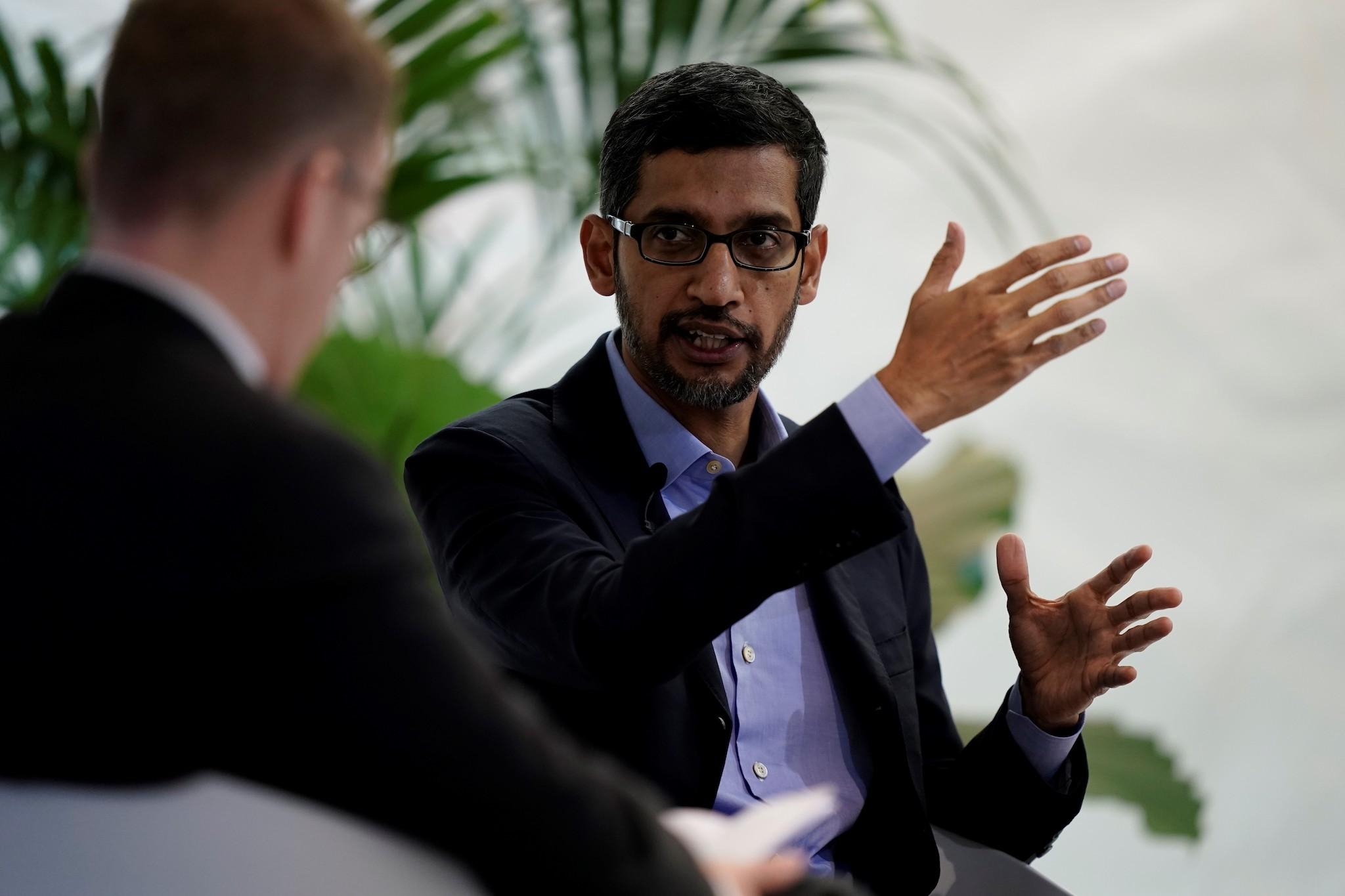Artificial intelligence must be regulated to stop it damaging humanity, Google boss Sundar Pichai says
Company will refuse to deploy its AI in situations that could be damaging, CEO says

Your support helps us to tell the story
From reproductive rights to climate change to Big Tech, The Independent is on the ground when the story is developing. Whether it's investigating the financials of Elon Musk's pro-Trump PAC or producing our latest documentary, 'The A Word', which shines a light on the American women fighting for reproductive rights, we know how important it is to parse out the facts from the messaging.
At such a critical moment in US history, we need reporters on the ground. Your donation allows us to keep sending journalists to speak to both sides of the story.
The Independent is trusted by Americans across the entire political spectrum. And unlike many other quality news outlets, we choose not to lock Americans out of our reporting and analysis with paywalls. We believe quality journalism should be available to everyone, paid for by those who can afford it.
Your support makes all the difference.Artificial intelligence must be regulated to save humanity from being hit by its dangers, Google's boss has said.
The potential damage the technology could do means it is "too important" not to be constrained, according to Sundar Pichai.
While it has the potential to save and improve lives, it could also cause damage through misleading videos and the "nefarious uses of facial recognition", he wrote in the New York Times, calling on the world to work together to define what the future of AI should look like.
Regulation would be required to prevent AI being influenced by bias, as well as protect public safety and privacy, he said.
"Growing up in India, I was fascinated by technology. Each new invention changed my family's life in meaningful ways. The telephone saved us long trips to the hospital for test results. The refrigerator meant we could spend less time preparing meals, and television allowed us to see the world news and cricket matches we had only imagined while listening to the short-wave radio," he said.
"Now, it is my privilege to help to shape new technologies that we hope will be life-changing for people everywhere. One of the most promising is artificial intelligence.
"Yet history is full of examples of how technology's virtues aren't guaranteed. Internal combustion engines allowed people to travel beyond their own areas but also caused more accidents. The internet made it possible to connect with anyone and get information from anywhere, but also easier for misinformation to spread."
Mr Pichai pointed to Google's own published principles on AI, and said existing rules such as the GDPR in the EU could be used as the foundation for AI regulation.
"International alignment will be critical to making global standards work. To get there, we need agreement on core values. Companies such as ours cannot just build promising new technology and let market forces decide how it will be used. It is equally incumbent on us to make sure that technology is harnessed for good and available to everyone," he said.
He added that the tech giant wanted to work with others on crafting regulation.
"Google's role starts with recognising the need for a principled and regulated approach to applying AI, but it doesn't end there. We want to be a helpful and engaged partner to regulators as they grapple with the inevitable tensions and trade-offs. We offer our expertise, experience and tools as we navigate these issues together.
"AI has the potential to improve billions of lives, and the biggest risk may be failing to do so. By ensuring it is developed responsibly in a way that benefits everyone, we can inspire future generations to believe in the power of technology as much as I do."
Google is one of the world's most prominent AI developers - its virtual helper, the Google Assistant, is powered by the technology, and the company is also working on a number of other products, including driverless cars, which utilise AI.
Mr Pichai also revealed that Google's own principles specify that the company will not design or deploy artificial intelligence in some situations, including those which "support mass surveillance or violate human rights".
Additional reporting by Press Association
Join our commenting forum
Join thought-provoking conversations, follow other Independent readers and see their replies
Comments